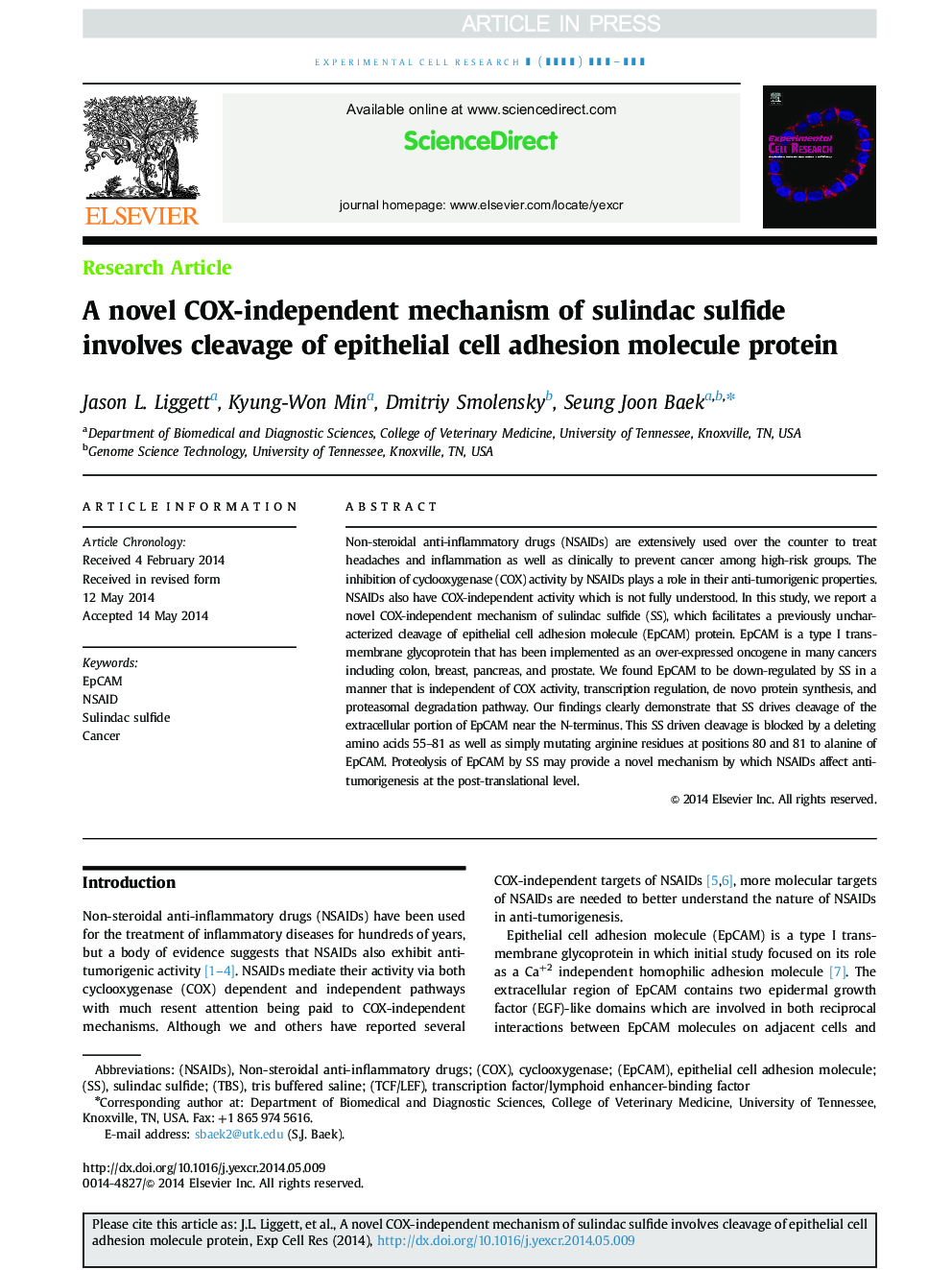| Article ID | Journal | Published Year | Pages | File Type |
|---|---|---|---|---|
| 10904007 | Experimental Cell Research | 2014 | 9 Pages |
Abstract
Non-steroidal anti-inflammatory drugs (NSAIDs) are extensively used over the counter to treat headaches and inflammation as well as clinically to prevent cancer among high-risk groups. The inhibition of cyclooxygenase (COX) activity by NSAIDs plays a role in their anti-tumorigenic properties. NSAIDs also have COX-independent activity which is not fully understood. In this study, we report a novel COX-independent mechanism of sulindac sulfide (SS), which facilitates a previously uncharacterized cleavage of epithelial cell adhesion molecule (EpCAM) protein. EpCAM is a type I transmembrane glycoprotein that has been implemented as an over-expressed oncogene in many cancers including colon, breast, pancreas, and prostate. We found EpCAM to be down-regulated by SS in a manner that is independent of COX activity, transcription regulation, de novo protein synthesis, and proteasomal degradation pathway. Our findings clearly demonstrate that SS drives cleavage of the extracellular portion of EpCAM near the N-terminus. This SS driven cleavage is blocked by a deleting amino acids 55-81 as well as simply mutating arginine residues at positions 80 and 81 to alanine of EpCAM. Proteolysis of EpCAM by SS may provide a novel mechanism by which NSAIDs affect anti-tumorigenesis at the post-translational level.
Keywords
Related Topics
Life Sciences
Biochemistry, Genetics and Molecular Biology
Cancer Research
Authors
Jason L. Liggett, Kyung-Won Min, Dmitriy Smolensky, Seung Joon Baek,
